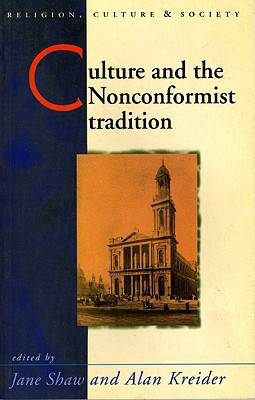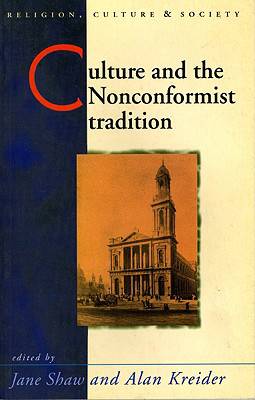
- Afhalen na 1 uur in een winkel met voorraad
- Gratis thuislevering in België vanaf € 30
- Ruim aanbod met 7 miljoen producten
- Afhalen na 1 uur in een winkel met voorraad
- Gratis thuislevering in België vanaf € 30
- Ruim aanbod met 7 miljoen producten
Omschrijving
Christianity has, from its very beginnings and because of its beliefs and practices, had a paradoxical relationship to the world. This stimulating book, which contains articles by seven leading historians, argues that the relationship between the Nonconformist tradition in Britain and 'culture' provides a particularly illuminating example of this paradox.
Nonconformists, set apart from the Established Church, developed their own particular cultural practices and in so doing made a distinctive contribution to the culture of Britain as a whole. At the same time, they were inevitably influenced by that wider culture. These essays consider the development of chapel and Dissenting culture within the wider society, examining such issues as the emergence of the Nonconformist conscience, the place of politics in the pulpit, the contribution of women writers to provincial Nonconformity and the architecture of the free churches.
This fascinating and varied collection of essays goes beyond the usual boundaries of denominational and ecclesiastical history and interacts with broader trends in cultural and social history to demonstrate the significance of such matters as gender relations, politics and economics in any exploration of the relationship between Christianity and 'the world'.
Specificaties
Betrokkenen
- Auteur(s):
- Uitgeverij:
Inhoud
- Aantal bladzijden:
- 187
- Taal:
- Engels
- Reeks:
Eigenschappen
- Productcode (EAN):
- 9780708315187
- Verschijningsdatum:
- 30/04/1999
- Uitvoering:
- Hardcover
- Formaat:
- Genaaid
- Afmetingen:
- 153 mm x 221 mm
- Gewicht:
- 399 g

Alleen bij Standaard Boekhandel
Beoordelingen
We publiceren alleen reviews die voldoen aan de voorwaarden voor reviews. Bekijk onze voorwaarden voor reviews.











